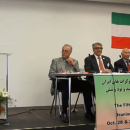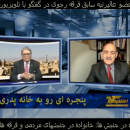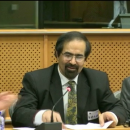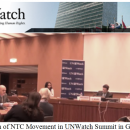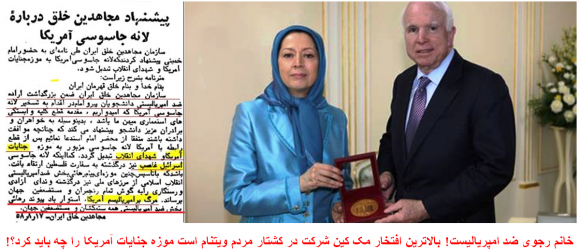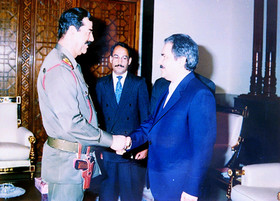Paul R. Pillar
February 9, 2012
http://nationalinterest.org/blog/paul-pillar/deeper-terrorism-6491#.TzbLTzVIc50.facebook
LM/The National InterestAlthough the assassinations of Iranian scientists have until now been followed by no indication of responsibility other than smug comments of satisfaction from officials of the most likely foreign state perpetrator, now NBC offers something more specific. According to a report by Richard Engel and Robert Windrem, the assassinations have been the joint work of Israel and the Iranian cult-cum-terrorist group Mujahedin-e Khalq. According to the report, the partnership has involved Israel providing financing, training and arms to the MEK to accomplish the hits, as well as to commit other acts of violent sabotage inside Iran. The story tracks with accusations from officials of the Iranian government, who say they base most of what they know on interrogations and captured materials from a failed assassination attempt in 2010. Such accusations by themselves would be easy to dismiss, of course, as more of the regime’s propaganda. But the NBC story cites two senior U.S. officials, speaking anonymously, as confirming the story. A third official said “it hasn’t been clearly confirmed yet,” although like the others he denied any U.S. involvement. The Israeli foreign ministry declined comment; the MEK denied the story.
With or without confirmation of details of this story, the assassinations are terrorism. (The official U.S. government definition of terrorism for reporting and statistic-keeping purposes is “premeditated, politically motivated violence perpetrated against non-combatant targets by subnational groups or clandestine agents.”) The extra twist in this new report is the use by Israel—already widely believed to have been responsible for the murders—of the MEK, a group with a long track record of terrorism that has included American victims. Other parts of that record, including the MEK having been an arm of Saddam Hussein’s security forces, have meant the group has almost no popular support within Iran. Anyone in Israel, the United States, or anywhere else hoping for a salubrious regime change in Iran would be foolish to have anything to do with the MEK.
Even more important than what is foolish is what is immoral. Terrorism denies the high ground to anyone who uses it, including the use of it in disagreements with Iran. It also hastens the slide through mutually reinforcing hostility into what may be a far more destructive form of violence (i.e., a war). Although the United States has not been involved in the assassinations, the nature of its relationship with Israel, both real and perceived (President Obama commented the other day about staying in “lockstep” with Israel on Iran), means that Israel’s actions suck the United States farther down the slide.
Amid all the reasons for dismay and outrage over this, there is also an irony. One of the oft-repeated rationales for the conventional wisdom that an Iranian nuclear weapon would be unacceptable is that it would somehow turn Iran into a regional marauder that would recklessly throw its weight around the Middle East in damaging ways. Well, there is an example of a Middle Eastern state that behaves in such a way, but it isn’t Iran. This state invades neighboring countries, ruthlessly inflicting destruction on civilian populations, and seizes and colonizes territory through military force. It also uses terrorist group proxies as well as its own agents to conduct assassinations in other countries in the region.
Besides terrorism, there also is, as with any prototypical rogue state, a nuclear weapons angle. This state, unlike Iran, has never signed the Nuclear Nonproliferation Treaty or admitted an international inspector to any of its nuclear facilities. Even though it has had a sizable arsenal of nuclear weapons for decades, it has kept its nuclear weapons program completely out of reach of any international scrutiny or arms control regime and does not even acknowledge the program’s existence. It also is so intent on maintaining its regional nuclear weapons monopoly that it is using terrorism to strike at the nuclear program of a country that doesn’t even have one nuclear weapon and probably hasn’t made a decision to make one.
One could almost argue that this record of behavior supports that conventional wisdom about what an Iranian nuke would do to Iran’s behavior. But actually it doesn’t. The behavior of the state in question is made possible not by nuclear weapons but instead by its conventional military superiority over its neighbors and by the cover provided by a subservient, protective great power whose policies it is able to manipulate.















